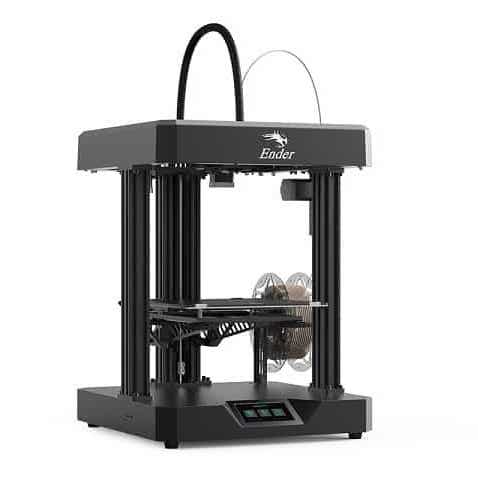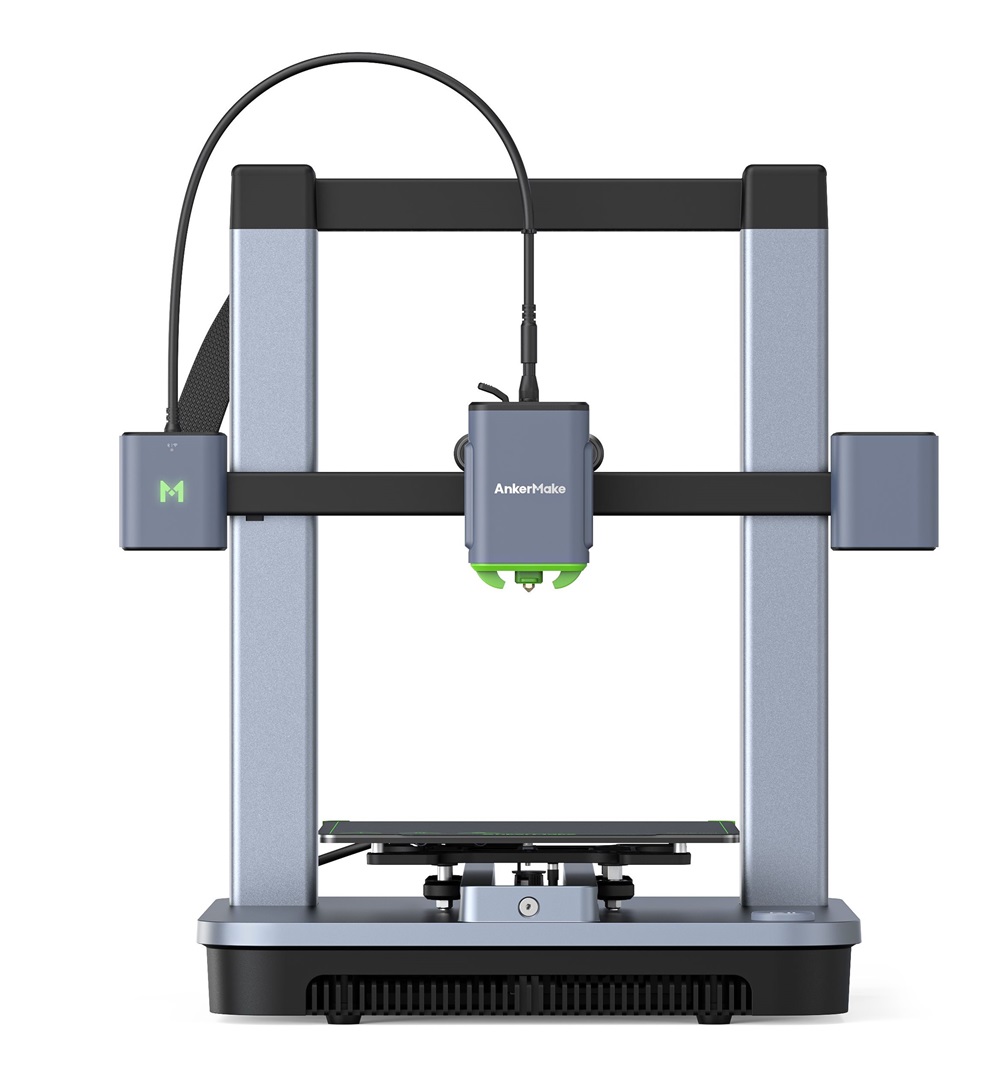Compare Ender 7 vs M5C
Comparison between the best 3D printers
Choose the best 3D printer at the best price. The cheapest 3D printers are here.
Buy a 3D printer here with 3D Fila.
 |
 |
|
| Model | Ender 7[BUY Ender 7] |
M5C[BUY M5C] |
| Printing Material | Filament | Filament |
| Buy Filament for Creality 3D Ender 7 | Buy Filament forAnkerMake M5C | |
| Estimated price | $429,00 | $399,00 |
| Manufacturer | Creality 3D | AnkerMake |
| Release Year | 2021 | 2023 |
| Print Volume [mm] | 250x250x300 | 220x220x250 |
| Printer Size [mm] | 430x460x570 | 466x374x480 |
| Weight [kg] | 17,2 | 9,6 |
| Power Loss Recovery | YES | YES |
| Enclosed printer | NO | NO |
| Bed Leveling | Manual | Automatic |
| Filament End Sensor | YES | YES |
| Bed type | Heated | Heated |
| Power supply system | Bowden | Direct Drive |
| Standard nozzle | 0,4 | 0,4 |
| Maximum Nozzle Temperature [°C] | 260 | 300 |
| Maximum Bed Temperature [°C] | 100 | 100 |
| Maximum printing speed [mm/s] | 250 | 500 |
| Filament holder | YES | YES |
| Camera for supervision | NO | NO |
| Recommended filaments | PLA, PETG, Tritan, Flex, ABS | PLA, PETG, TPU, ABS, PA, PLA-CF, PETG-CF, PA-CF |
| Recommended slicers | Cura, Simplify, Slic3r, IdeaMaker | AnkerMake Studio (macOS, Windows), Simplify3D, Ultimaker Cura, PrusaSlicer |
| Maximum Resolution [mm] | 0,1 | 0,1 |
| Processor | Creality CR-FDM V.2.4.S1_V101 32bits | |
| Display | Display touchscreen 4,3'' | |
| Power Supply | 110/220V / 350W | 350 W |
| Connectivity | SD / USB | Wi-Fi, USB-C, Bluetooth |
| Operating systems | Windows, Mac, Linux | Windows, Linux e Macbook |
| Date of registration in the system | 2022-11-04 | 2024-09-11 |
| Release date | 2021 | 2023 |
| Extra features | Crealitys Ender 7 printer offers remarkable print speeds, utilizing CoreXY kinematics for precise and fast movement. With a 250x250x300mm build area, dual direct extruder, and custom hotend, the Ender 7 is capable of printing at high speeds, although quality may suffer on smaller prints. Assembly is relatively straightforward, but the machine is noisy and can get hot. Its true speed potential is most noticeable on larger prints, where it outperforms its competitors. | The AnkerMake M5 printer stands out for its impressive print speed, reaching up to 500mm/s. It features AI print monitoring, an integrated camera for creating timelapses, auto-leveling bed with pressure sensor, direct extruder, flexible PEI-coated build plate, and Wi-Fi and USB-C connectivity. Assembly is quick and easy, and the printer is designed to deliver high print quality and ease of use. |
| Support for multiple colors and materials (AMS and CFS) | NO | NO |
Notes * |
||
| Cost-benefit | 7 / 10 | 7 / 10 |
| Hardware | 2 / 10 | 2.8 / 10 |
| Tela | . | . |
| Print volume | 4 / 10 | 3 / 10 |
| Performance | 2 / 10 | 4 / 10 |
| [BUY Ender 7] | [BUY M5C] |
Conclusion |
| In comparing the Creality Ender 7 and the AnkerMake M5C, several factors highlight their strengths and target audiences. The Ender 7, although released in 2021, excels in print speed and has a slightly larger print volume, making it suitable for users who prioritize productivity and large-scale projects. Its straightforward assembly and traditional Bowden setup provide an accessible experience, although its manual bed leveling might be less appealing for those seeking convenience. On the other hand, the M5C, released more recently in 2023, offers advanced features such as automatic bed leveling, higher maximum printing speeds, and superior connectivity options (Wi-Fi and Bluetooth). This printer emphasizes ease of use and versatility with a range of supported materials, which may cater better to beginners or those looking for a more streamlined printing experience. Additionally, the direct drive filament system ensures better handling of flexible materials, a notable advantage over the Ender 7. When considering price, the M5C presents a compelling cost-to-benefit ratio, especially given its improved technology and modern features. While the Ender 7 remains a solid choice, particularly for those focused on speed for larger prints, the enhanced capabilities of the M5C make it a more attractive option for those who value innovation and user-friendly operation. Ultimately, the choice between the two will depend on the specific needs and preferences of the user, whether that be speed, print volume, or advanced features. |

